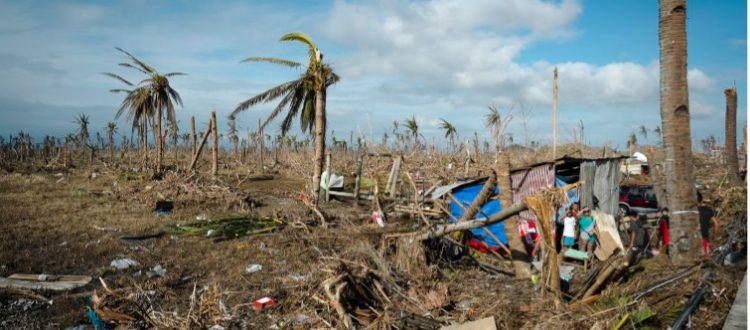THE URGENCY OF TALKING ABOUT LOSS&DAMAGE
A little more than six months after the close of COP26, the world’s governments are preparing to return to the global climate arena for the 2022 intersessional negotiations, which will prepare for COP27 in Sharm El Sheikh scheduled for November 2022. As usual, the intersessionals will be held in Bonn, Germany, where the UN Secretariat that organizes the work of the Framework Convention on Climate Change, the UNFCCC, is based. They will be held in person from the 6th to the 16th of June, seeing the return to the presence of negotiators and observers, after the half-flop of the 2021 online intermediate negotiations. But what will the re-start point be?
The last plenary session of COP26 in Glasgow closed with the adoption of the “Glasgow Climate Pact,” an umbrella document that in the intentions of the British COP chairmanship was supposed to seal the closure of a COP concrete in results and ambitious in vision. We have had occasion to analyse the outcome of that climate conference extensively, commenting on the way the mainstream Western media had turned India’s sudden reversal on coal into a somewhat distorted story, omitting the fact – among other noteworthy ones – that not even in Glasgow the group of countries historically responsible for climate change did succeed in meeting the goal of mobilizing the $100 billion a year in climate finance promised annually at the COPs now as far back as 2009. At the same time, despite very important steps forward on the issues of transparency, reporting and in the signing of multilateral variable-geometry agreements on methane, oil and gas, nothing concrete came out of COP26 on the thorny but urgent issue of “loss&damage,” or, in general terms, losses, damage and repairs.
That of loss&damage is arguably the most complex of the negotiating issues, as similarly to the development of common reporting and transparency methodologies it requires a genuine willingness from all countries to cooperate, including financially, in the new solidarity-based system of global governance that pivots on the climate change work strand while touching, by spill-over principle, on all other areas of human activity. Historically, there has been talk of losses and reparations following conflicts between states, with a winner (or a winning coalition) economically quantifying the losses of the various parties to the conflict and determining war reparations, i.e., monetary or asset transfers equivalent to what was estimated to have been lost in the course of the conflict. Imagining applying this principle to losses due to extreme events related to climate change may not seem entirely unheard of when looking at the now proven data and studies on the historical and emissive responsibilities of some countries (in short, of the West) with respect to the disasters that afflict the most vulnerable today.
Even today and after 30 years of debate, just quantifying losses and due reparations may appear a too arduous task to achieve shared policy solutions to be transformed in turn into actions and programs. The term “reparations” itself never appears in the negotiating documents which rather refer to the vaguer concept of climate finance. From policymaking to actual transfers we then find another step, a long and all to come one, but necessary. As a civil society we cannot avoid to engage in our activities to make sure the old promises (the $100 billion a year in climate finance) are finally fulfilled, and that new and urgent issues can appear on work agenda; after all, it is a real matter of global justice.
In Glasgow, despite the enthusiasm and hopes of many, on the issue of loss&damage it was only possible to launch “dialogues,” i.e., meetings to explore the issue in depth in an informal setting albeit under UN auspices, however with no immediate effect on existing treaties. These dialogues are part of the new strand of “Glasgow Climate Dialogues,” the first edition of which will be staged precisely in Bonn during the intersessionals, June 7-11, 2022. As every year, Italian Climate Network will be present in Bonn with its own group of observers of the negotiations, with a particular focus this year precisely on the dialogue on loss&damage as well as on the Secretariat’s budget discussions, which often anticipate the level of concreteness of the next COP. In addition, ICN in collaboration with United Kingdom Youth Climate Coalition and Green Impact International (Ghana) will carry out its own event within the negotiations, scheduled for June 11, 2022 from 3:00 to 4:30 p.m., during which it will stocktake with other youth climate organizations towards COP27 and present to the audience of negotiators and observers the latest European and African grassroots initiatives towards COP27.
Article by Jacopo Bencini, Policy Advisor and UNFCCC Contact Point at Italian Climate Network

